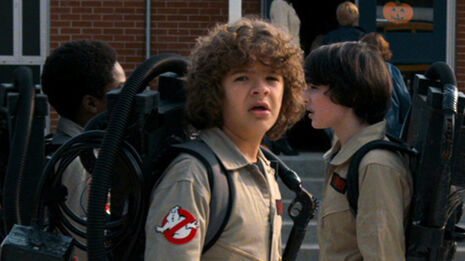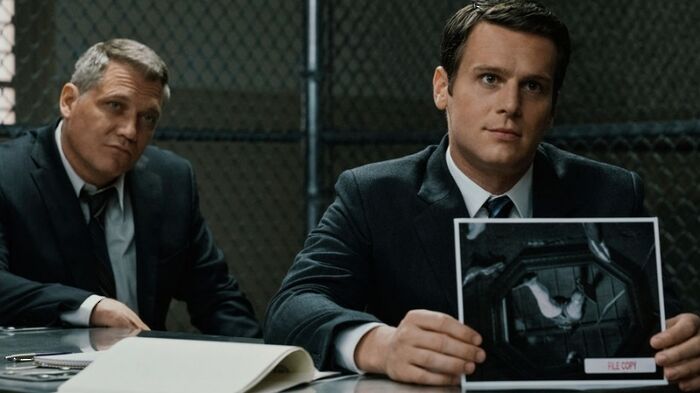Stranger Things 2 review: struggling to get back to the future
Having enjoyed the first series, Ruben Traynor finds fan-servicing and predictability prevent its sequel from ever getting off the ground.

The most logical explanation for the recent upsurge of 80s nostalgia in popular culture is that the people making the art are now Generation X: the children of the 80s recreating what they themselves loved in their youth. In just the last year or so we have seen two new Star Wars films, a new Blade Runner, a new Terminator, a new action-fuelled Alien film, a new Ghostbusters, and so on.
"This banality, perhaps a misfired attempt at nostalgia garnering, is echoed through many of the characters"
This, however, does not explain Stranger Things, as the show's creators, the Duffer Brothers, were just a year old when Back to the Future was released in 1985. One would therefore hope that they would be using the striking similarities in political climate between then and now as the reason for the ‘80s-set narrative. Yet, in the second series, shallow references typifying shallow narrative are what sadly takes the forefront.
The self-aware, critique-through-nostalgia of the first series is all but vanished; what remains is a shell of its former unique identity – a bizarre blending of Twin Peaks, Aliens, and Denis Villeneuve’s Prisoners. The main problem with the new series is its relentless excess of tropes familiar to the worst of sequels; perhaps if the Duffers had lived through the ‘80s they would have been more familiar with the extremely poor critical reception of Jaws 2, Poltergeist II: The Other Side, Robocop 2, Conan the Destroyer, or a personal favourite, Teen Wolf Too.
This season indulges in the worst of those traps that sequels often fall into: we have a bigger, badder, and therefore less intimidating monster, multiple new poorly-crafted love interests, flanderisation, pandering to the established fan-base… the list goes on. Instead of subverting the problems with these clichés, the writers try to cram in as many as possible, seeming to somehow intend derision by saturation.

This results in the biggest problem with the series: a distinct lack of any stakes. For a show that relies on complete audience investment, constantly anticipating each twist, scenes often feel inconsequential – nothing on scale is ever properly threatened. By the time the show establishes its peril, it is almost over, and the viewer never gets a chance to fear any wide implications of the disturbing events. The first season’s terror is demystified, the aliens explained through tiresome exposition, and the governmental enemy becomes tangible, and, hence, unthreatening.
Furthermore, the archetypal narrative exposes the archetypal characters. Bob Newby, Joyce’s new boyfriend, typifies this among the newcomers in this season. Engineered as the ‘new Barb’, the nerdy-but-loveable guy for audiences to latch on to, he sadly exists mostly as a simple reference to Astin’s role in The Goonies.
Some of the original characters are also shown up as one-dimensional by the more platitudinous writing. The much-loved Eleven seems in this season to have a depth and narrative arc not dissimilar to one of the child X-Men given 2-minutes of screentime. One of the only truly dreadful moments of the season is the rapid tonal shift of the spin-off-like seventh episode, where she tritely learns to control her powers in platitudinous superhero fashion. This banality, perhaps a misfired attempt at nostalgia garnering, is echoed through many of the characters that seemed so warm at the series’s start.
This is not to say the series is all bad. A certain Aliens homage in episode 6 is extremely tense, thrillingly so – directed concisely and with considerable craft. The Lovecraftian aliens throughout the season look amazing, and although they exist as pure spectacle, they are nonetheless an exciting one. The aesthetic is consistent and some of the pure cinematic components are competently executed – rare among American TV shows with multiple directors and a team of writers.
This is, regrettably, the essence of the problem, for the Duffer Brothers never seem to be aiming to make a TV show. Although the format largely worked for the original series, it now feels strung out and empty, easily cast onto the piles of modern television that suffer similar problems. The insubstantial nostalgia overruns the show, resulting in a sense of outdated lifelessness.
Stranger Things 2 ultimately fails because it never attempts to subvert and challenge the viewer’s expectations of what a sequel should be. This is exemplified in the unnecessary amount of time spent explaining the repercussions of fan-favourite side character Barb’s ultimately inconsequential disappearance. Stranger Things 2 pursues vulgar appeasement of audience gratification, making it a frustrating, if superficially enjoyable, watch
 News / Colleges charge different rents for the same Castle Street accommodation2 March 2026
News / Colleges charge different rents for the same Castle Street accommodation2 March 2026 News / News in Brief: waterworks, wine woes, and workplace wins 1 March 2026
News / News in Brief: waterworks, wine woes, and workplace wins 1 March 2026 News / Climate activists protest for ‘ethical careers policy’1 March 2026
News / Climate activists protest for ‘ethical careers policy’1 March 2026 News / Private school teacher who lied about Cambridge degree barred from teaching27 February 2026
News / Private school teacher who lied about Cambridge degree barred from teaching27 February 2026 News / Angela Merkel among Cambridge honorary degree nominees27 February 2026
News / Angela Merkel among Cambridge honorary degree nominees27 February 2026









